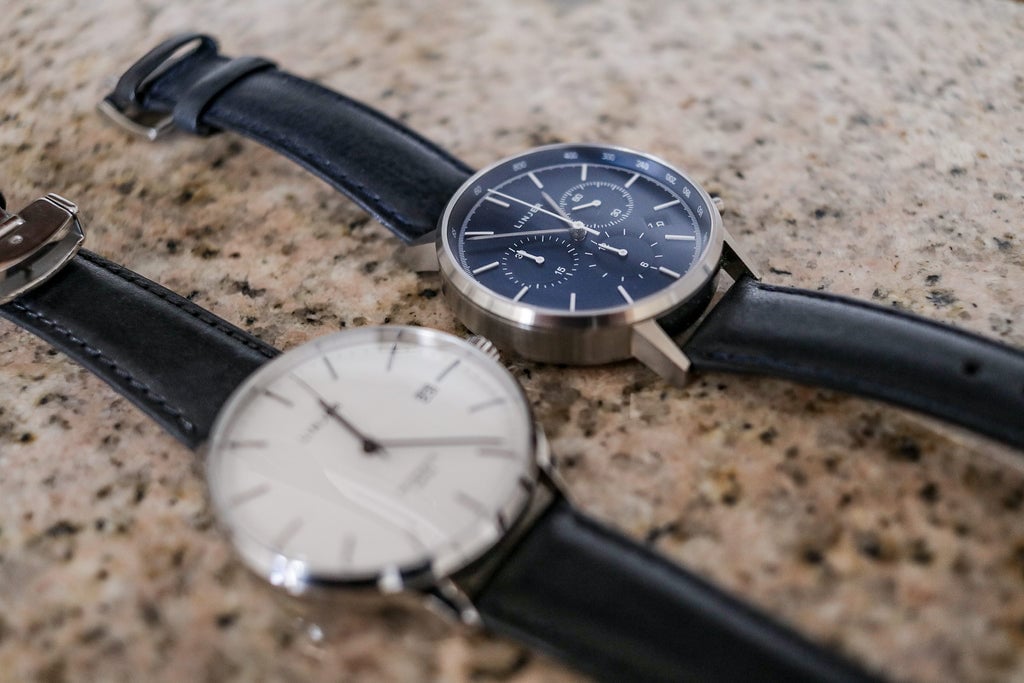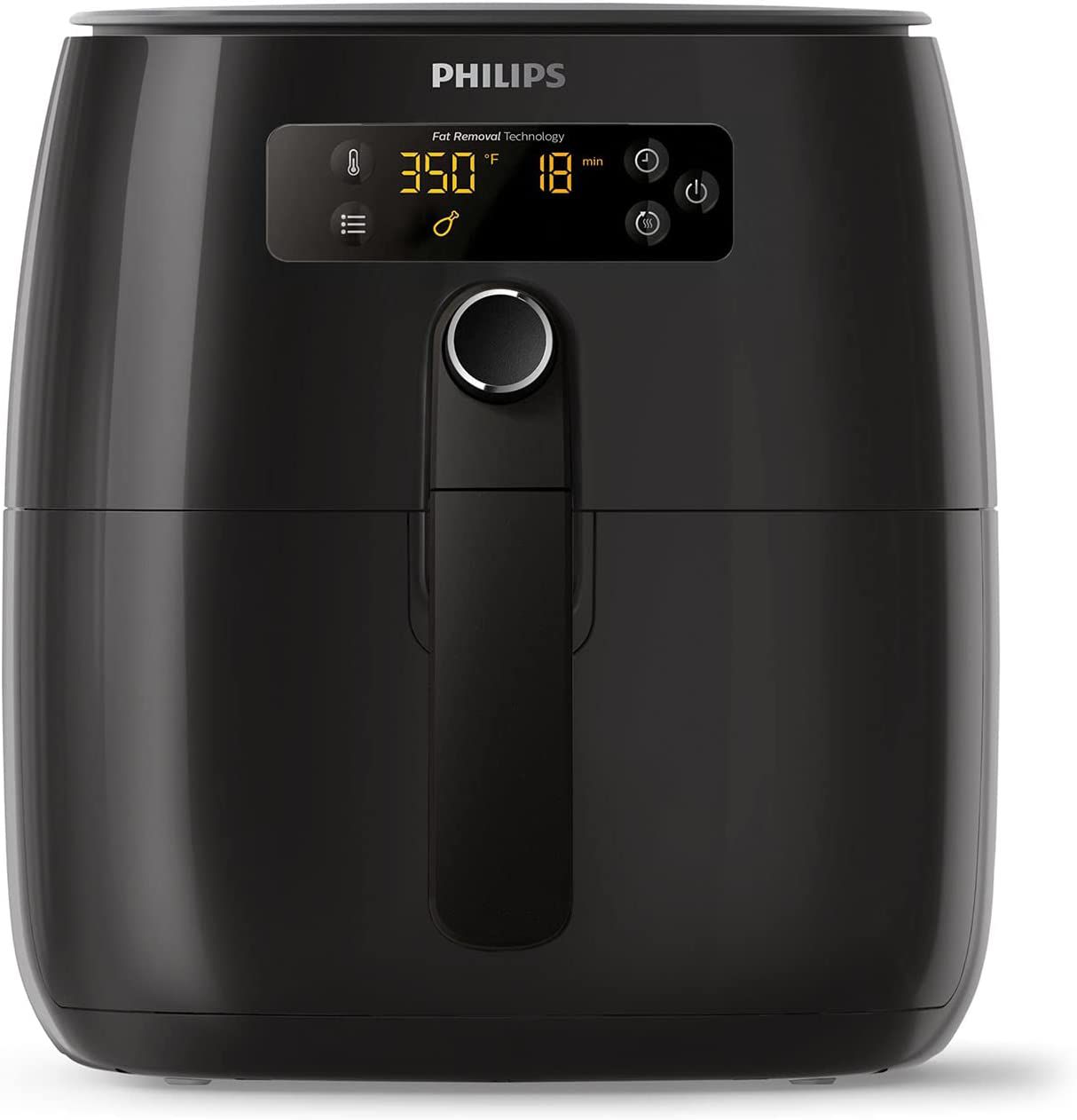1. Introduction
Welcome to our guide on how to choose the perfect backpack for your camping adventures! Whether you’re a seasoned outdoor enthusiast or a beginner looking to explore the great outdoors, having the right backpack is essential for a successful and enjoyable camping experience. But with so many options available, it can be overwhelming to know where to start. That’s where we come in! In this article, we’ll walk you through the key factors to consider when selecting a backpack, ensuring that you make an informed decision and find the backpack that best suits your needs.
[amazon bestseller=”Backpacks for Camping” items=”10″]
2. Understanding the Importance of a Backpack
Before we dive into the nitty-gritty details, let’s take a moment to understand the significance of a backpack in camping. Your backpack serves as not just a means of transportation for your gear but also as your trusty companion for the duration of your trip. It’s like your very own portable home, carrying everything you need to survive and thrive in the wilderness.
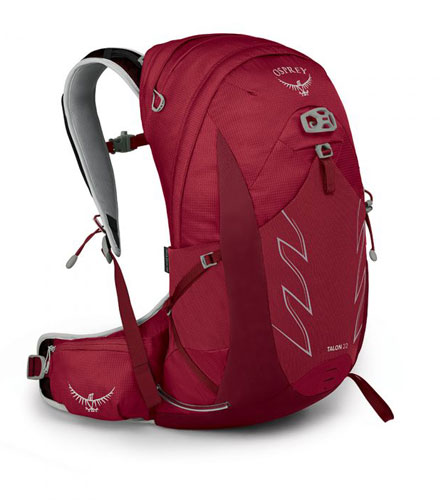
A well-designed backpack can make all the difference in terms of comfort, organization, and weight distribution. It allows you to carry your camping essentials efficiently, keeping them easily accessible and preventing strain on your body during long hikes. On the other hand, a poorly chosen backpack can lead to discomfort, sore muscles, and even potential injuries, hampering your overall camping experience.
The Key Features to Look for in a Camping Backpack:
- Capacity: The size of the backpack should be able to accommodate all your camping gear comfortably.
- Weight: A lightweight backpack is preferable to reduce strain on your body.
- Comfort: Adjustable straps, padded back panels, and ergonomic designs ensure a comfortable fit.
- Durability: Look for backpacks made from durable materials, able to withstand the rigors of outdoor adventures.
- Organization: Multiple compartments, pockets, and attachment points allow for efficient storage and easy access to your gear.
- Weather Resistance: A water-resistant or waterproof backpack keeps your belongings safe and dry in unpredictable weather conditions.
- Load Distribution: Features like load-lifting straps and hip belts distribute the weight evenly, reducing strain on your shoulders and back.
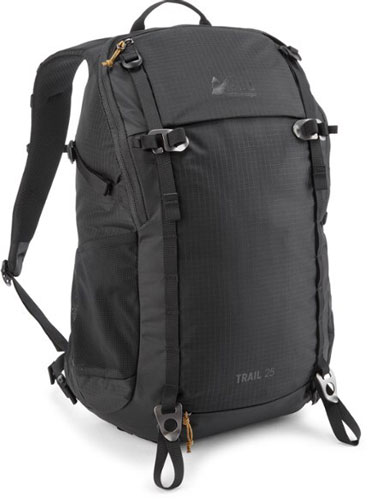
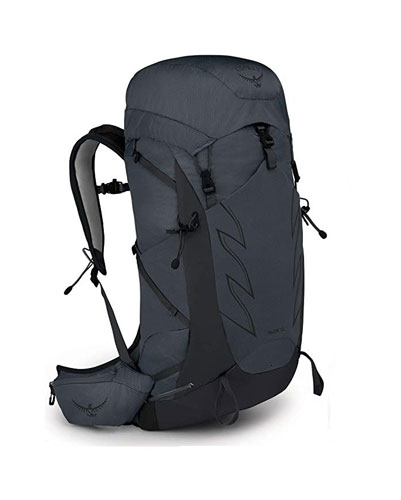
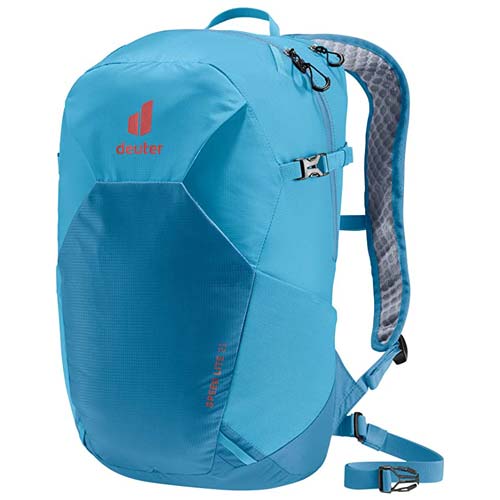
3. The Evolution of Backpacks for Camping
Backpacks have come a long way since their inception. The history of backpacks dates back thousands of years when early humans used animal hides or woven grass to carry their belongings. Throughout history, backpacks have transformed to adapt to different needs, evolving from simple sackcloth bags to the technologically advanced backpacks we have today.
Historically, backpacks were primarily used by military personnel and explorers, enabling them to carry supplies and important gear during long journeys. Over time, backpacks became popular among hikers, campers, and outdoor enthusiasts, leading to the development of specialized camping backpacks.
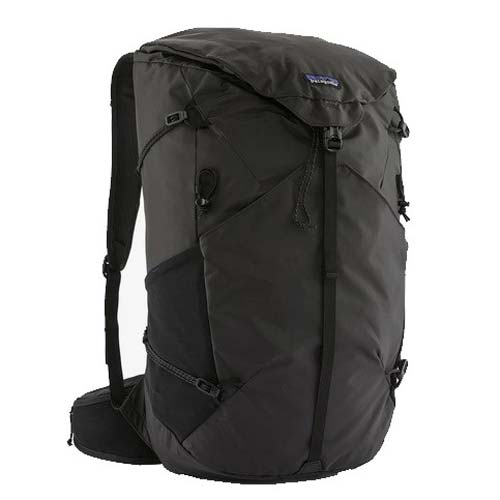
Today, we have a wide range of backpack options specifically designed for camping, with advanced features and materials engineered to offer durability, comfort, and functionality. Understanding the historical significance and evolution of backpacks helps us appreciate the innovation and thought that has gone into designing backpacks suitable for camping purposes.
4. Practical Applications
Camping Trips
When it comes to camping, choosing the right backpack is crucial. Whether you’re embarking on a weekend getaway or a long expedition in the wilderness, your backpack will be your trusted companion. It will carry all of your essentials, from clothing and food to a tent and sleeping bag. A well-designed camping backpack will ensure that you can easily access your belongings and distribute the weight evenly, making your outdoor adventure much more enjoyable. So, don’t underestimate the importance of selecting the right backpack for your camping trips.
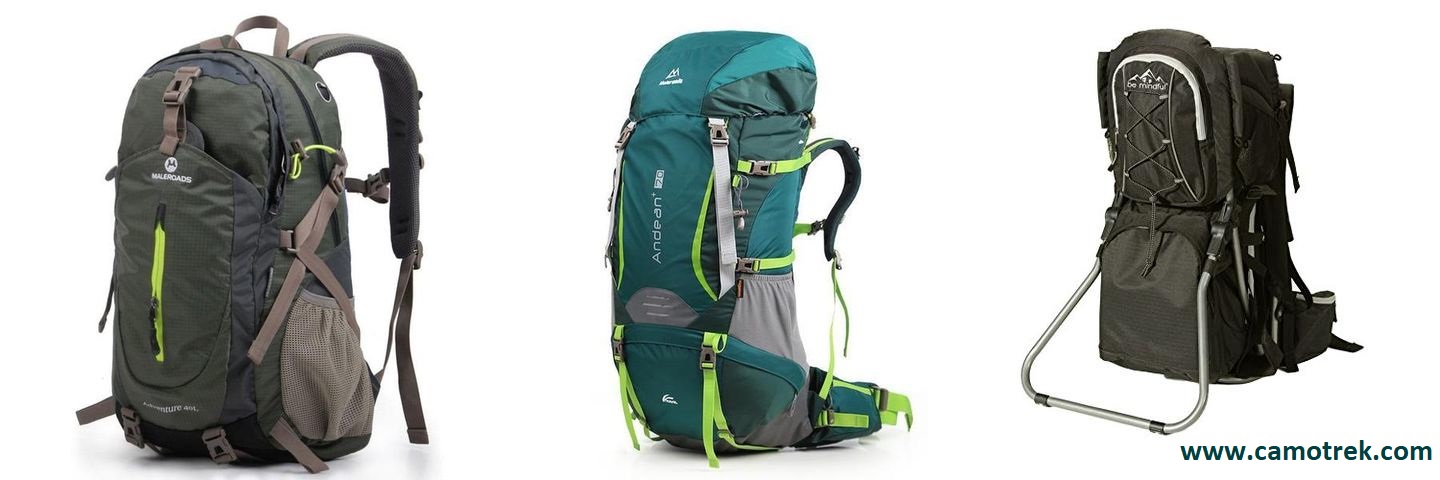
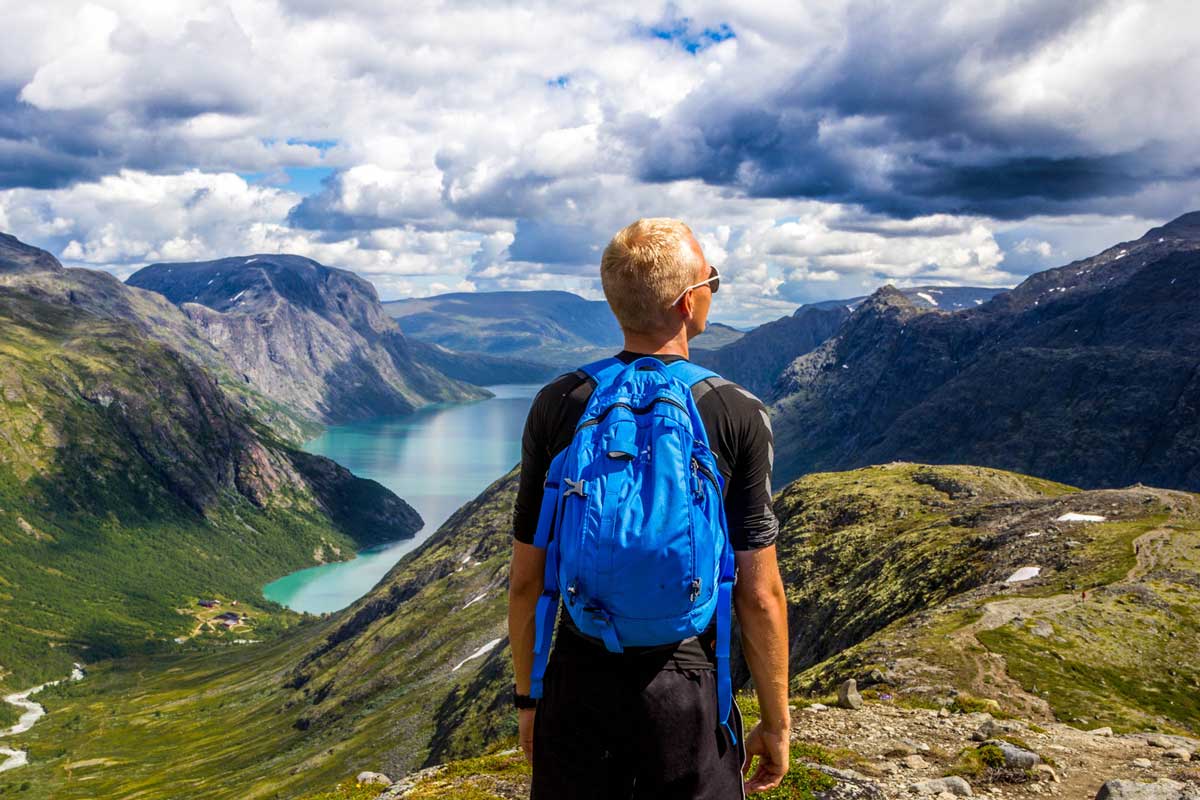
Hiking Adventures
Hiking enthusiasts know that a sturdy backpack is essential for a successful trek. Whether you’re tackling a challenging mountain peak or exploring a picturesque trail, your backpack needs to be able to carry everything you need while still providing optimal comfort. It should have features like adjustable straps, a padded back panel, and ample compartments to keep your gear organized. With a reliable hiking backpack, you can comfortably carry your water bottles, snacks, first aid supplies, extra clothing layers, and any other essentials you may need during your hike.
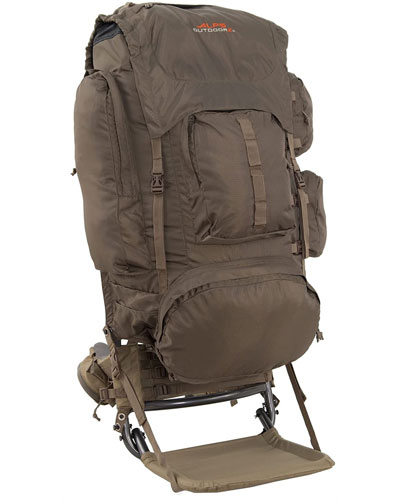
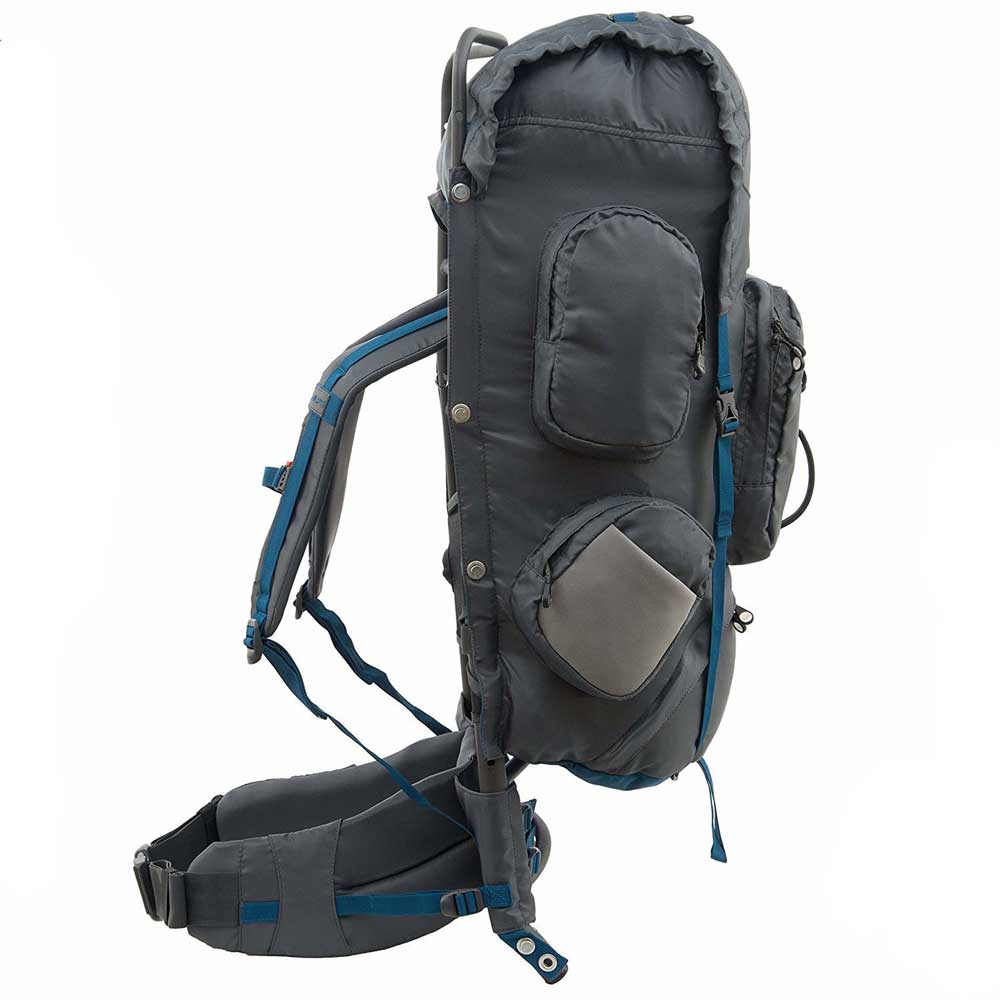
World Travel
If you’re embarking on a long-term journey to explore different countries and cultures, your backpack becomes your home away from home. It should be durable, spacious, and versatile enough to accommodate all of your belongings. Consider a travel backpack with lockable zippers, multiple compartments, and a detachable daypack for added convenience. Remember, your backpack will be your constant companion as you navigate airports, train stations, and bustling city streets. So, choose one that can withstand the rigors of travel and make your adventures smoother.
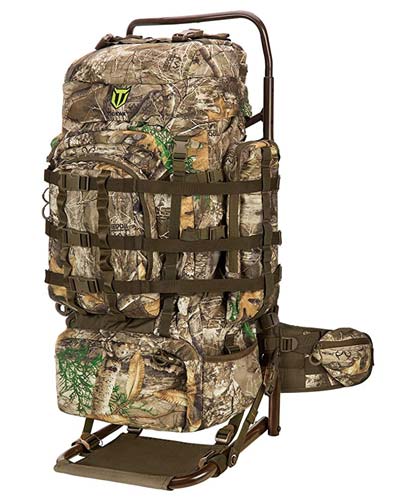
5. Benefits
Comfort and Ergonomics
Investing in a high-quality backpack designed specifically for camping offers numerous benefits, including enhanced comfort and ergonomics. These backpacks are usually equipped with padded straps and a supportive harness system, which helps to distribute the weight more evenly across your shoulders and hips. By reducing strain on your body, you’ll be able to hike or camp for longer periods without feeling fatigued. Remember, a comfortable backpack is your best friend on outdoor excursions, providing the support you need to enjoy your time in nature.
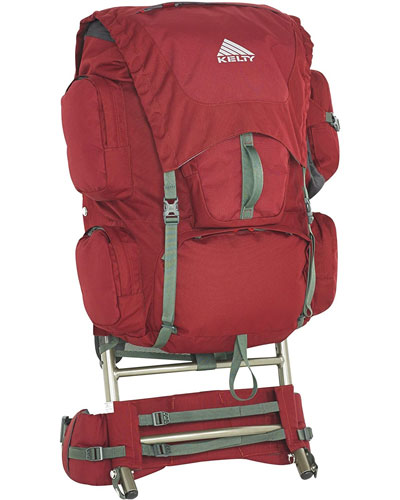
Organizational Efficiency
One of the key advantages of a well-designed backpack for camping is the ability to keep your gear organized. Multiple compartments and specialized pockets allow you to separate items based on their purpose, making it easier to access what you need when you need it. Imagine having dedicated pockets for your water bottle, flashlight, and even a waterproof compartment for your smartphone. By staying organized, you’ll save precious time and avoid that dreaded scavenger hunt for essential items buried at the bottom of your bag.
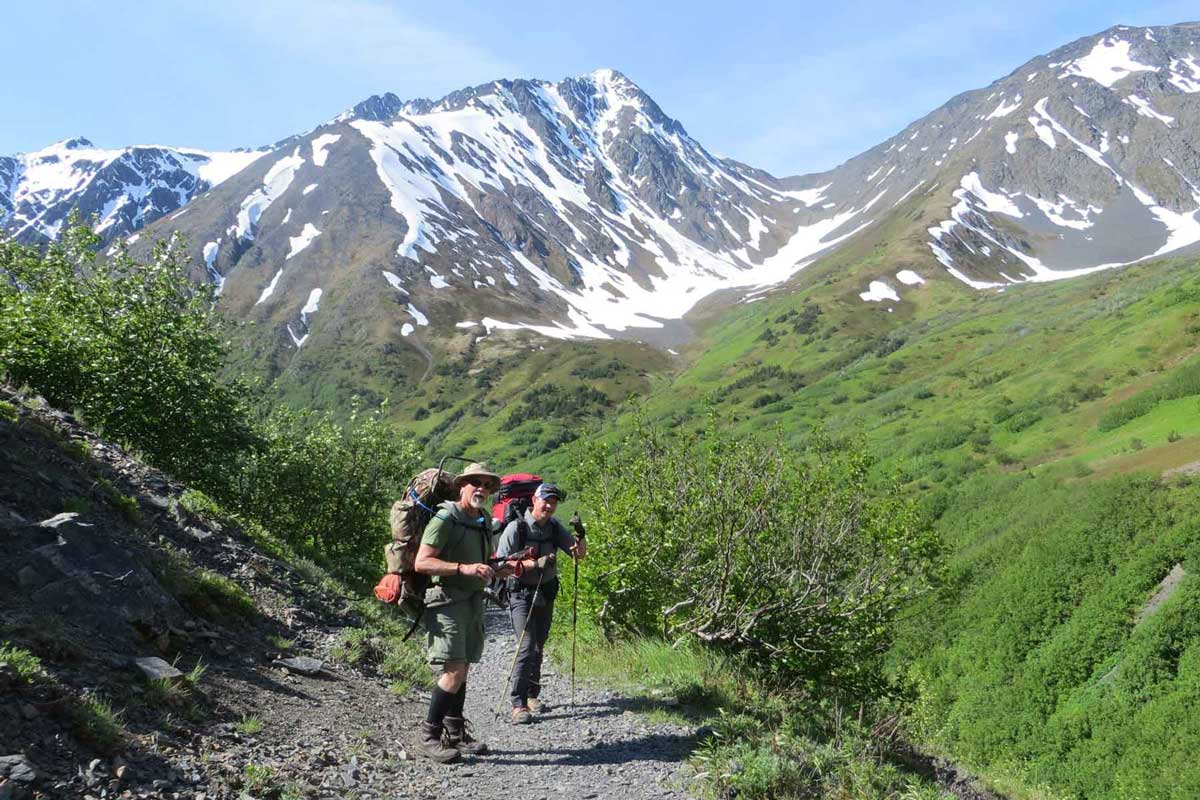
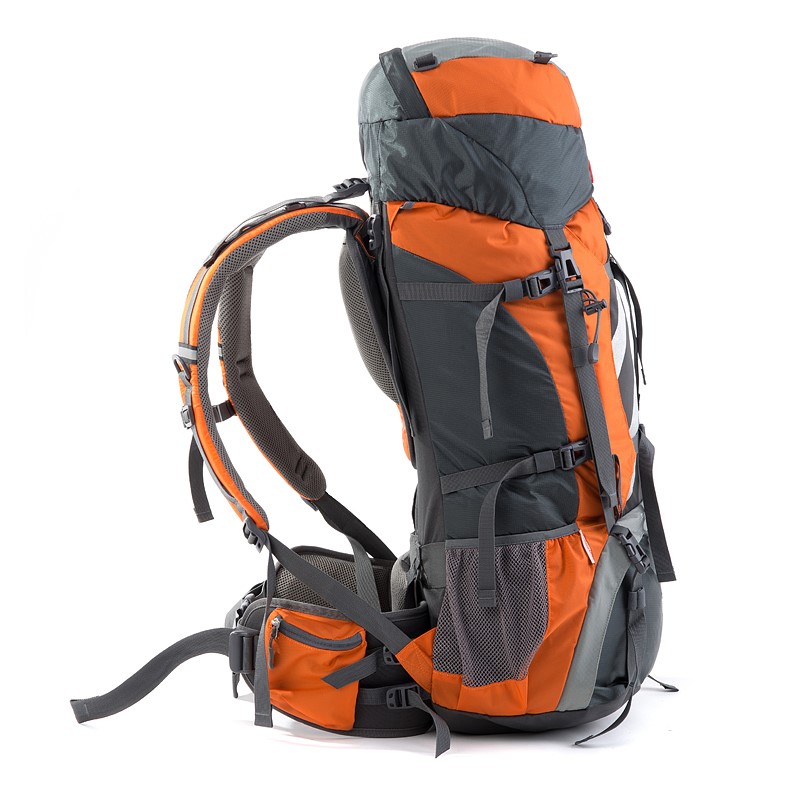
Durability and Weather Resistance
Outdoor activities expose your backpack to various weather conditions, rough terrains, and potential accidents. That’s why durability and weather resistance should be among your top considerations when choosing a camping backpack. Look for materials like ripstop nylon, reinforced stitching, and water-resistant coatings to ensure your backpack can withstand the demands of the great outdoors. Investing in a durable backpack means it will accompany you on numerous adventures, providing reliable protection for your gear throughout its lifespan.
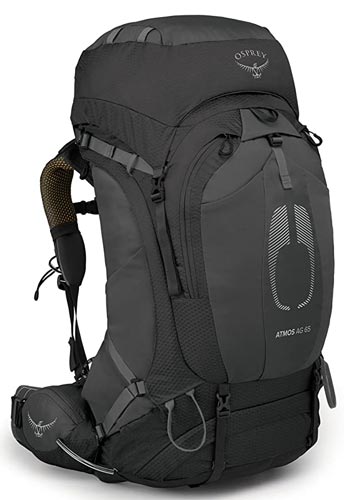
Versatility
A good camping backpack should offer versatility to cater to different needs. Some backpacks come with removable compartments or dividers, allowing you to customize the internal organization based on the type of trip you’re taking. The ability to adjust the backpack’s capacity also enables you to carry more or less gear, depending on the length and nature of your adventure. Whether you’re planning a quick weekend camping trip or an extended backcountry expedition, a versatile backpack will adapt to your needs, providing the flexibility you require in the wilderness.
6. Challenges to Consider
Weight Distribution
One of the challenges you may encounter when choosing a camping backpack is finding the right balance in weight distribution. It’s essential to ensure that the majority of the weight sits on your hips rather than your shoulders. Look for backpacks with a hip belt and adjustable straps to fine-tune the fit. Proper weight distribution helps prevent discomfort and strain, allowing you to trek long distances with ease. Remember, a backpack that isn’t properly adjusted can lead to back pain, sore shoulders, and an overall unpleasant experience.
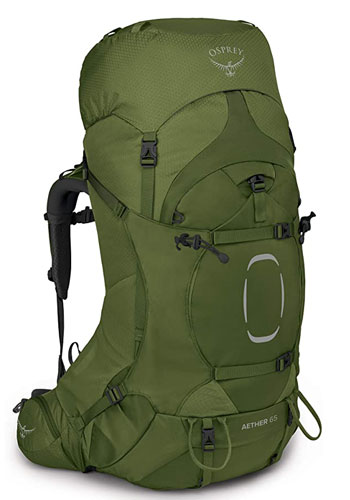
Bag Size and Capacity
Selecting the appropriate bag size and capacity is another challenge to consider. Carrying a backpack that is too large may tempt you to overpack, leading to unnecessary weight and inconvenience. On the other hand, a small backpack may not provide enough space for all your essentials. Consider the duration and type of camping trips you undertake most often, as well as the gear you typically bring. Strike a balance between having enough room to comfortably store your belongings and keeping your backpack lightweight for ease of mobility.
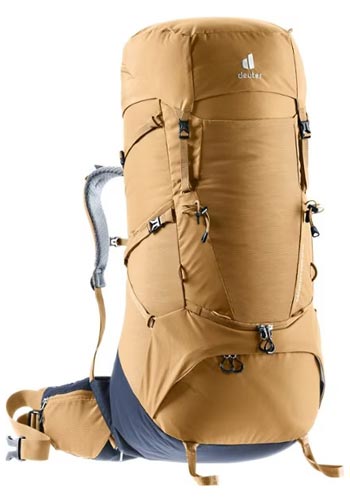
Weather Conditions and Seasonality
Different weather conditions necessitate specific features in your camping backpack. For instance, if you often hike in rainy areas, a waterproof or water-resistant backpack is crucial to protect your gear from moisture. Similarly, camping in cold weather may require additional insulation and lashing points for securing snowshoes or trekking poles. Reflect on the environments you’ll be exploring, the seasons you’ll be camping in, and choose a backpack that can handle the expected weather conditions. Being prepared for different scenarios will enhance your camping experience and ensure the longevity of your gear.
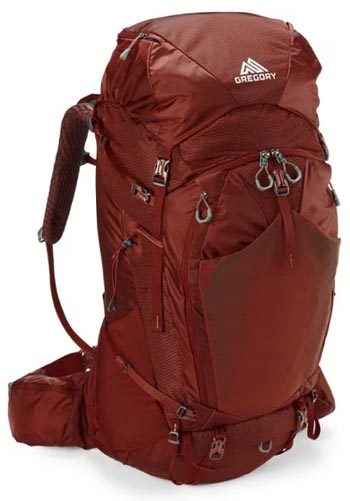
Choosing the right backpack for camping involves considering various practical applications, understanding the benefits it provides, and addressing potential challenges. By finding a backpack that suits your specific needs and preferences, you can ensure comfort, organization, durability, and versatility on all your outdoor adventures. So, let’s dive into a detailed exploration of these topics to equip you with the knowledge necessary to make an informed decision.
7. Alternatives to Traditional Backpacks
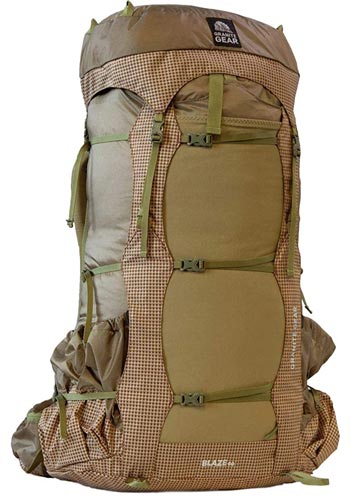
7.1 Wheeled Backpacks
Have you ever wished you could effortlessly roll your heavy loads instead of carrying them on your back? Wheeled backpacks might be the solution you’re looking for. These innovative backpacks combine the convenience of wheeled luggage with the functionality of a backpack. They come equipped with sturdy wheels and a retractable handle, allowing you to roll them on smooth surfaces, such as airport terminals or paved trails. However, keep in mind that they may not be suitable for rough terrains or uneven surfaces.
7.2 Daypacks
If you’re planning shorter camping trips or need a smaller bag for day hikes, consider investing in a daypack. These compact backpacks usually have a capacity of around 20 to 30 liters, making them ideal for carrying essentials like water bottles, snacks, extra layers of clothing, and a camera. Daypacks are lightweight, comfortable, and designed to provide quick access to your belongings. They are a popular choice among hikers and outdoor enthusiasts who prefer to travel light and fast.
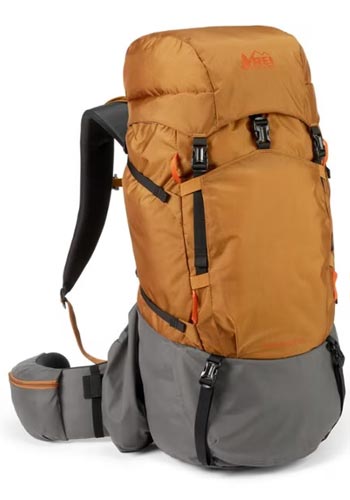
8. Comparing Backpack Features
8.1 Waterproof vs. Water-Resistant
When it comes to choosing a backpack for camping, one crucial consideration is its ability to withstand the elements. Waterproof backpacks are constructed with sealed seams and materials that prevent water from seeping in even during heavy rain. On the other hand, water-resistant backpacks can repel water to some extent, but they are not completely impervious to rain. Depending on the climate you’ll be camping in and the level of protection you desire, carefully assess whether you need a backpack that is fully waterproof or simply water-resistant.
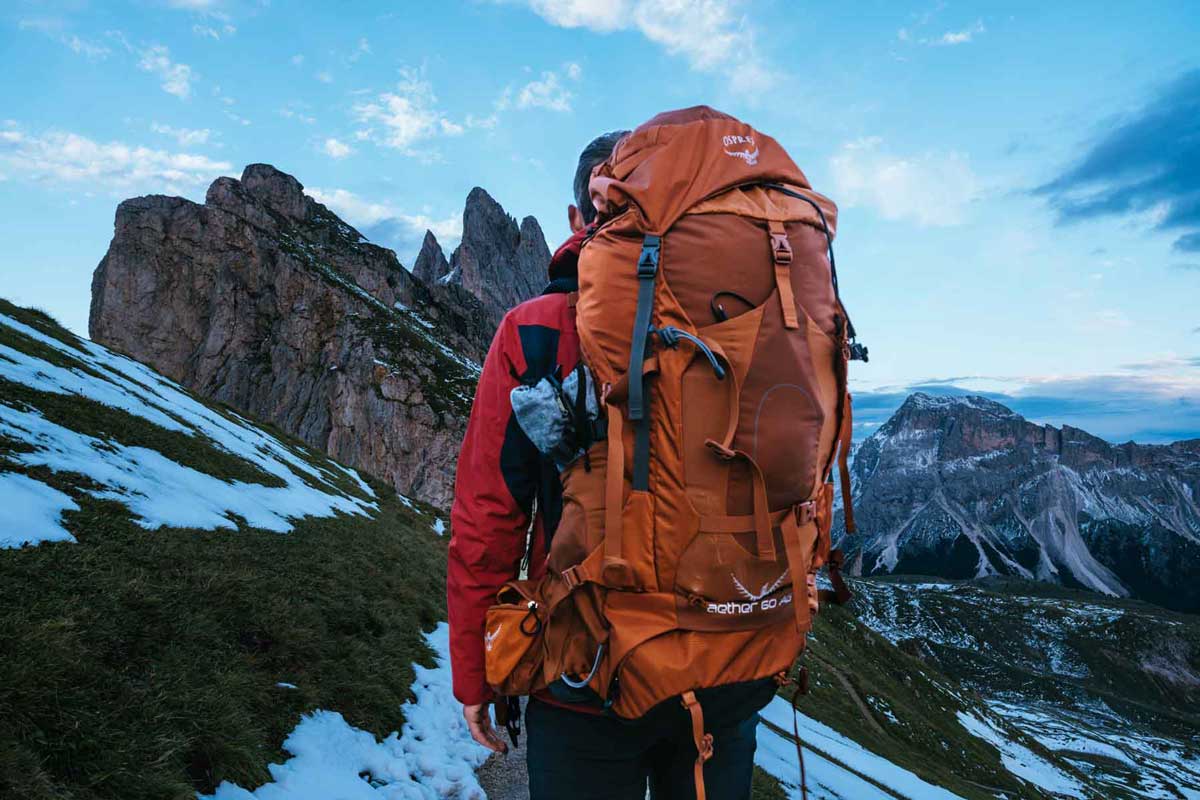
8.2 Frame Types: Internal vs. External
Backpacks can have either internal or external frames, each with its own advantages. Internal frame backpacks have a sleek design with the frame built into the backpack itself. These packs are generally more lightweight and provide a better fit, ideal for strenuous activities that require agility. On the other hand, external frame backpacks have a visible frame on the outside, which can offer more stability and support for heavier loads. Consider the type of terrain you’ll be traversing and the weight you’ll be carrying to determine which frame type suits your needs.
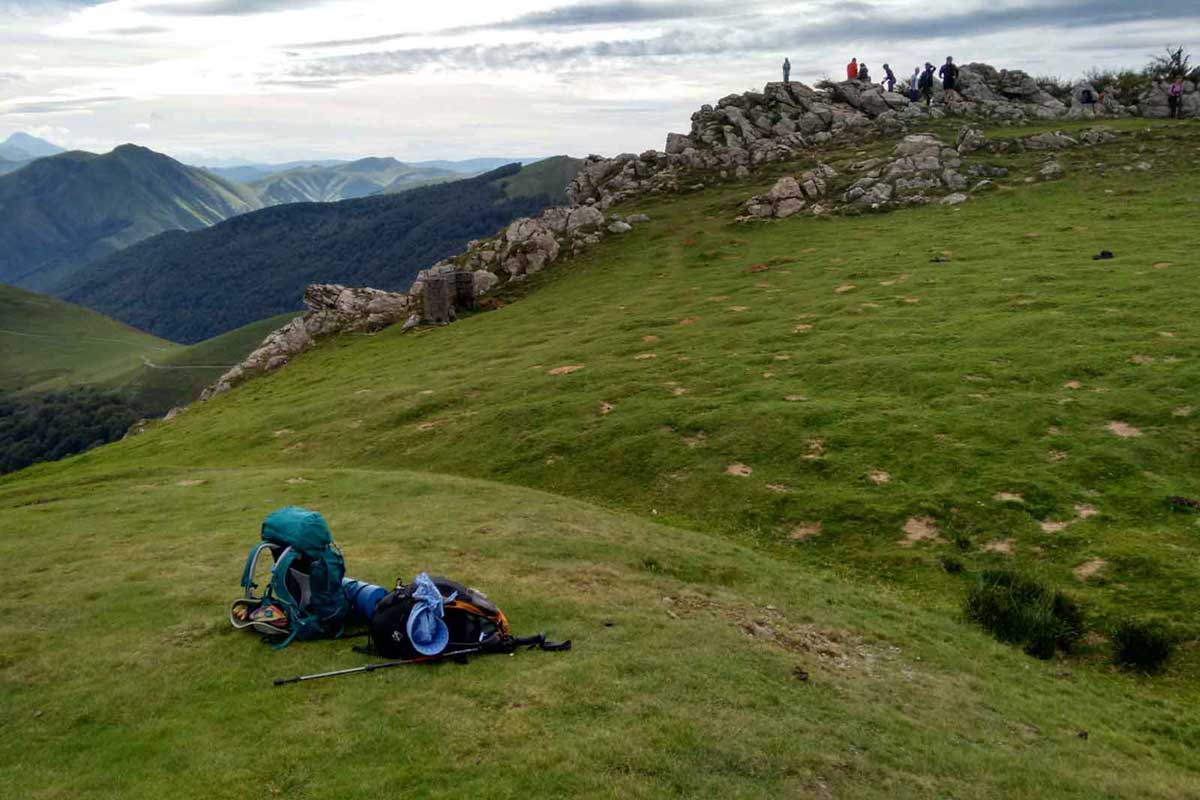
9. In Conclusion: Pack Your Adventure with Care
As you embark on your camping adventures, remember that your backpack will become your faithful companion, carrying not only your gear but also your memories. The right backpack will provide comfort, convenience, and confidence, ensuring you can focus on the beauty of nature rather than the weight on your shoulders.
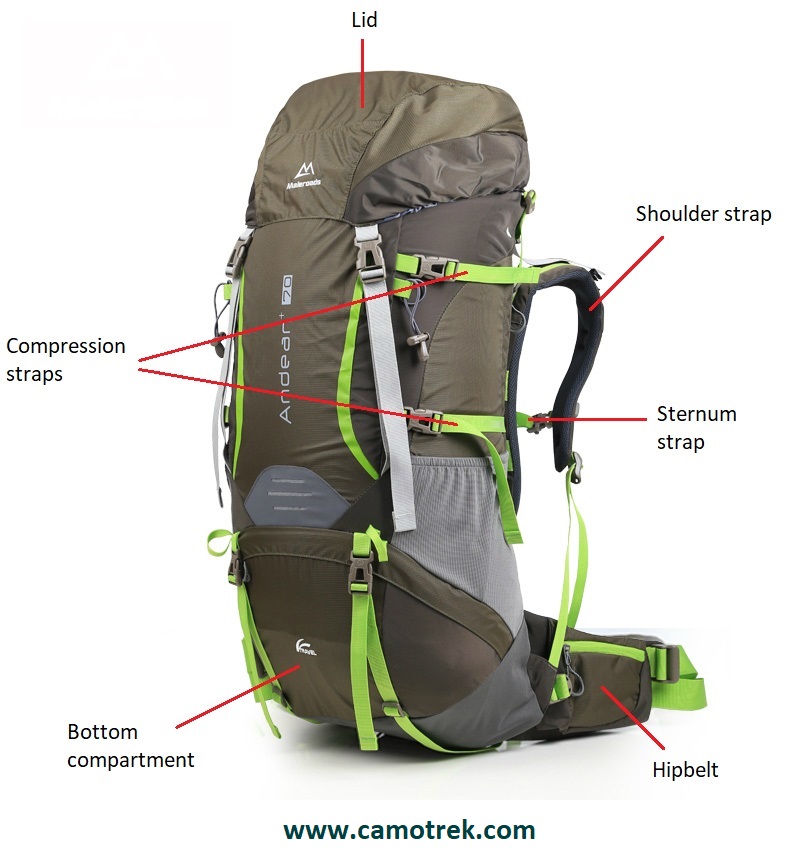
By carefully considering factors such as size, fit, durability, organization, and features, you can select a backpack that perfectly suits your camping needs. Whether you opt for a traditional backpack, a wheeled alternative, or a compact daypack, prioritize your comfort and prioritize your comfort and choose a reliable brand known for quality craftsmanship.
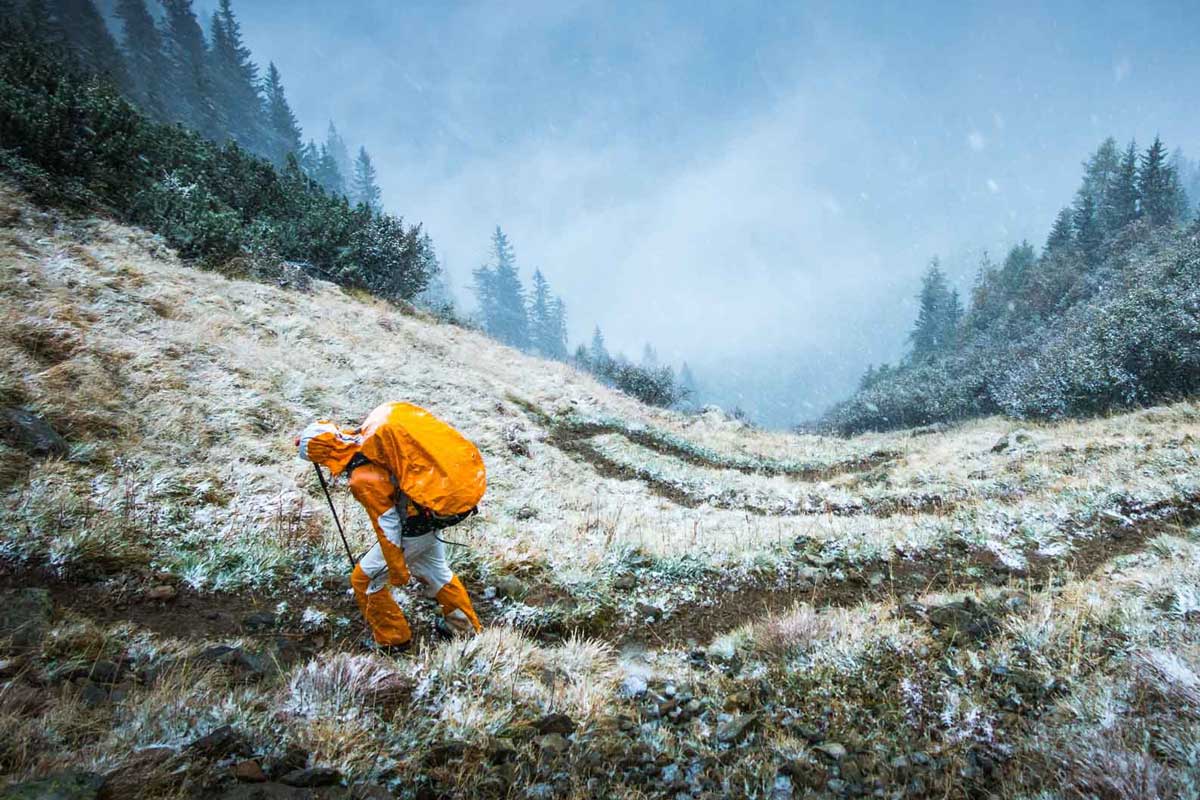
Isn’t it remarkable how a well-chosen backpack can transform your outdoor experience? It’s like having a trusty sidekick by your side, supporting you through thick and thin. So, gear up, select wisely, and embark on your camping journey with confidence, knowing that your backpack has your back, quite literally! Happy camping!
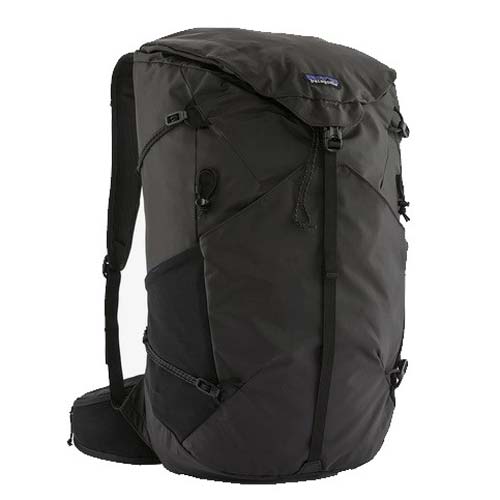
Frequently Asked Questions
1. What size backpack do I need for camping?
Choosing the right size backpack for camping depends on the duration of your trip and the amount of gear you plan to carry. For weekend trips or overnight stays, a backpack with a capacity between 30 to 50 liters should suffice. Longer trips may require larger backpacks ranging from 50 to 70 liters or more. Consider your specific needs and consult the backpack’s capacity measurement to make an informed decision.
2. What features should I look for in a camping backpack?
When selecting a camping backpack, focus on vital features like comfort, durability, and functionality. Look for adjustable shoulder straps and hip belts for proper weight distribution and comfort. Breathable back padding and ventilation systems are essential for reducing sweat and discomfort. Consider durable materials, such as ripstop nylon, and water-resistance for unpredictable weather conditions. Additionally, desirable features may include external pockets for quick access to essentials and attachment points for strapping on extra gear.
3. Are there specific backpacks designed for certain types of camping?

Absolutely! Backpacks are often designed to cater to different camping styles. For multi-day backpacking trips, backpacks with ample storage, proper weight distribution systems, and durability are crucial. If you’re into hiking and camping, consider lightweight backpacks with good ventilation. For car camping, where weight isn’t a significant factor, you can opt for larger backpacks with more organizational features, making it easier to store and access items in the tent or campground.
4. Should I prioritize backpack weight or capacity for camping?
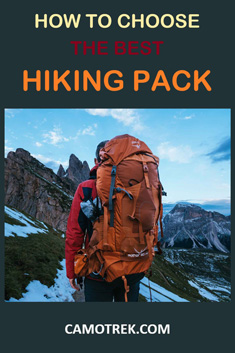
It ultimately depends on your personal preferences and the type of camping you plan to do. If you prioritize lightweight gear and plan to engage in more active, longer hikes, focus on finding a backpack that offers a balance between weight and capacity. However, if you prioritize carrying extra gear or hiking shorter distances, you may want to prioritize a higher capacity backpack that provides ample room for your belongings.
5. How do I ensure the backpack fits properly?
A proper-fitting backpack is essential for a comfortable camping experience. To ensure a good fit, measure your torso length and compare it to the backpack’s sizing chart. Adjust the shoulder straps snugly but not too tight, ensuring they don’t dig into your shoulders. The hip belt should sit on your hip bones and feel supportive, transferring weight from your shoulders to your hips. Experimenting with adjustments and trying the backpack with some weight will help you fine-tune the fit to your body.








